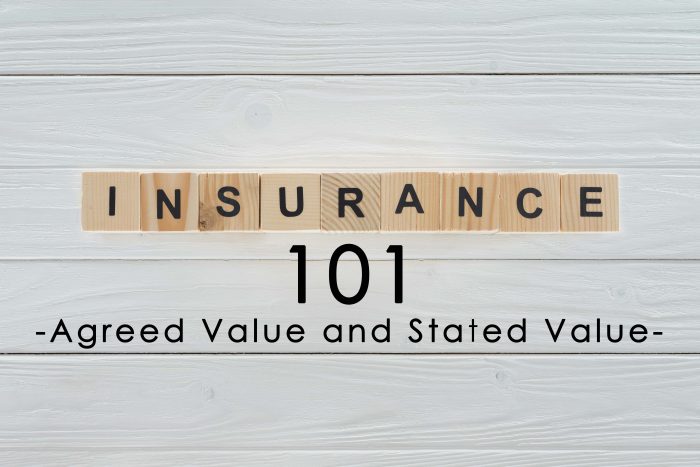Insurance Term of the Day: Agreed Value and Stated Value

Insurance Term of the Day: Agreed Value and Stated Value
When going through the aftermath of a car accident, there may be many terms that you’ve never heard before. Have you ever wondered how the insurance company determines how much to pay you for your totalled vehicle? There are multiple forms of estimated value for cars: ACV (Actual Cash Value), stated value, and agreed value. But what are the differences between the three? How will the value of your car be determined with your specific insurance policy? How your vehicle is valued will depend on the type of insurance policy you have.
What is ACV? Actual cash value is what your vehicle is worth on the day you crashed it. What was your vehicle worth, in cash, right before the accident occured? The insurance company will use a series of strategies to determine this value. At this point, the adjuster will come into the situation.
If the vehicle is a total loss, the adjuster will inspect the car for damages. The adjuster will use a specific source to view the average value of your exact vehicle, based on the year, make, and model. They may ask you a series of questions, like how many miles are on the car, for example. However, if you find a credible source that indicates your vehicle may be worth more than what the adjuster offers you, he/she has the ability to adjust the value of your car accordingly.
What is agreed value? Agreed value means that there is an agreement between the insurance policyholder and the insurance company regarding exactly how much will be paid out if the vehicle is totalled. Before the contract is even signed, the amount you will be paid out on a claim is determined. There is no negotiating what you will receive for a total loss. By providing documentation proving the worth of your vehicle, the value that will be paid out of a claim is guaranteed. Agreed value is often used for a classic car policy.
In summary, damages are paid up to actual cash value; a total loss is paid the agreed value by the insurance company.
What is stated value? Stated value allows you to pick your coverage limits by telling the insurance company what the vehicle is valued at, using proper documentation. Often, an appraisal on your vehicle is necessary to determine its worth. Stated value is going to be a less expensive insurance policy than a standard policy. Stated value actually helps determine your insurance rates, but doesn’t necessarily determine what the payout would be for a total loss of the vehicle. This is because insurance companies choose to pay out either actual cash value, or stated value, whichever is less. In summary, stated value simply gives you the ability to insure the car for less than it’s worth in special circumstances.
Check with your personal insurance agent to find out how your car would be valued in case of an accident.










